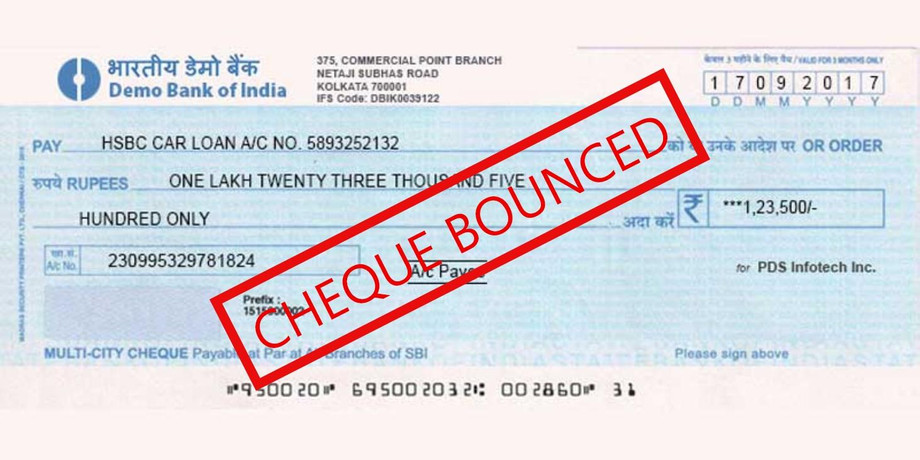Cheque Bounce In IndiaPosted by legal services on March 4th, 2020 Introduction Cheques are one of the most common and safest methods of making a financial transaction in business and in personal transactions also. In India, cheques are one of the main causes of legal disputes. There are over 2.5 lakh cases registered related to cheque bounce in India. Definition of Cheque “Cheque is a negotiable instrument in writing containing an unconditional order, addressed to a banker, signed by the person who has deposited money with the banker, requiring him to pay on demand, a certain sum of money only to the order of a certain person or to the bearer of the instrument.” When a Cheque is said to be Bounced?A bank under certain conditions may refuse payment of cheque or is bound to dishonor a cheque, then the cheque is considered bounced. The cheque bounce is treated as an offense and action can be taken under Section 138 of The Negotiable Instruments Act when the cheque is dishonored for insufficiency of funds in the account of a customer.
Why do Cheques Bounce in India?There are several reasons due to which cheques bounce in India. The reasons for cheque bounce include:
The Process & Time of Sending Notice of dishonor
Steps to initiate prosecution for a cheque bounce:- To start prosecution under Section 138, the following three conditions are needed to be fulfilled.
Prosecution under Section 138 can be launched against:- The prosecution can be initiated against the payor and if a company commits an offense under this section, then the company and every person who were in charge and were responsible to the company at the time when the offense was committed, shall be deemed to be guilty of the offense and be liable to be proceeded against. If a person or a company takes a loan from the bank and has consecutively made the payment on time but cheque has been bounced even for a single EMI payment, the banker may file a case of cheque bounce against the person or the company. Implications of a cheque bounce:- Bounced cheques do not get reflected on traditional credit reports generally, but they are reported on the bank account statement. All nationalized and private banks today ask the customer to provide their respective bank statements for a period of up to 1 year for any loan processing. Certain cheque may affect loan eligibility and creditworthiness. How to avoid cheque bounces? One should never write a cheque without money in his/her own bank account. Legal Actions against Bounced Cheque case in IndiaAfter the cheque gets bounced in any bank, the bank sends a Cheque Return Memo or the cheque bounce memo to the account holder which mentions the reason for bouncing the cheque. If it is bounced due to some minute error, a simple notification mentioning the cheque bounce can be sent. Though if the cheque is bounced due to some intentional action by the issuer, one can take the following legal actions against in India:
Like it? Share it!More by this author |



